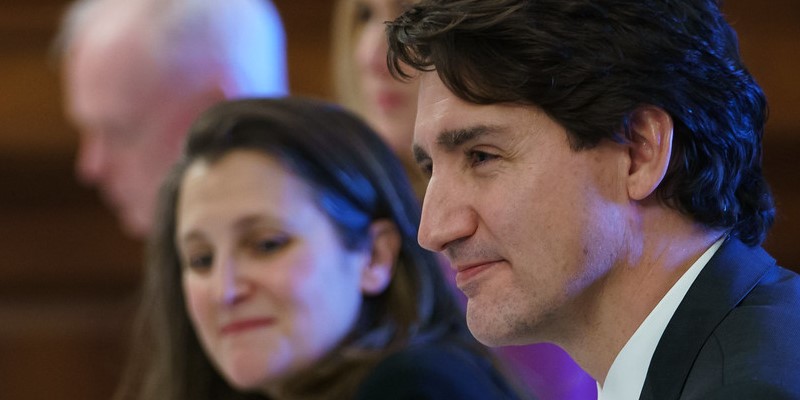Federal government’s promises of deficit reduction ring hollow

As budget season approaches, it’s worth remembering that policymakers must pair promises of fiscal discipline with concrete action.
According to projections, the Trudeau government will run a $40.0 billion deficit this fiscal year, which is slightly larger than last year’s $35.3 billion deficit, even though revenues are up almost $10.0 billion. Finance Minister Chrystia Freeland has repeatedly said that the era of large deficits won’t last forever and promised that starting in 2026/27 the federal deficit will be held every year to less than one per cent of GDP (the value of all goods and services produced in the economy).
But Freeland’s promises should be taken with more than a grain of salt because all governments have spotty track records when it comes to fiscal promises, particularly when they’re based on spending restraint in the future. Conversely, the most credible promises are introduced with immediate action.
The most famous example in Canada’s recent fiscal history came in the 1990s when Paul Martin, the then-Liberal government’s finance minister, vowed to slay Canada’s crippling budget deficit and repair federal finances “come hell or high water.” Martin’s words were accompanied by immediate action in the form of the transformative 1995 federal budget that began a process of deep budget cuts and major policy reforms that immediately put the government on a path to fiscal balance. The deficit was quickly eliminated and Canada was put on a sound fiscal footing that served the country well for almost two decades.
The “hell or high water” episode shows us how governments must match strong commitments with strong actions to increase the likelihood of success. On the other hand, promises for fiscal improvements in the future—unaccompanied by any concurrent action—usually aren’t worth the paper (or Tweets) they’re printed on.
The Trudeau government has produced many examples of incredible promises. First, on the campaign trail back in 2015, Trudeau and his team promised small and temporary deficits, and to shrink the national debt burden. Since then, the prime minister and his finance ministers have never been shy about promising to improve the bottom line. However, the target dates associated with these promises came and went without much notice, and the government pivoted to new plausible-sounding targets, using only words without policy change.
Again, the Trudeau government is far from alone in this tendency. In Ontario, Premier Wynne’s government repeatedly promised to shrink that province’s daunting debt burden, yet failed to decisively act. Basically, it was wishful thinking.
After Ontarians voted out the Wynne government, the Ford government promised to break from the Wynne approach and introduce real reforms that would slay the deficit quickly. But after a few half-hearted feints in the direction of fiscal discipline, the Ford government also failed to make good on its promises of debt reduction and as a result Ontario remains stuck under a mountain of government debt.
Canadian history is clear—unless government promises coincide with concrete actions to immediately start shrinking budget deficits, these promises of fiscal restraint at some future date shouldn’t be given much credence. Minister Freeland’s recent promises fall into this category. In the upcoming federal budget, if the Trudeau government and its cabinet want its promises to be credible, it must learn from its Liberal predecessors and their “hell or high water” moment, and reduce spending to immediately begin a process of deficit reduction.


